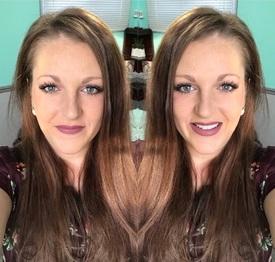Have I been netting too few calories? If so, fix me!
Replies
-
Keep in mind that ANY measure of your bodyfat percent is not going to be 100% accurate with the exception of a DEXA scan (which is expensive). You should take any bodyfat measure with a grain of salt and not set your entire program on the basis of that measurement.
Personally I would go with a simple tape measurer. I'd take your measurements once a month and use the same online calculator to give you your bodyfat percentage. More important than the number it gives you is the trend you see over time. Is the number going down, going up or staying the same.
I measure my bodyfat by tape measure and by calipers. The two methods yield slightly different but close results but they both trend exactly the same (meaning if one says I lost 1% bodyfat since my last measure so does the other).
This is a better measure of your progress than your scale weight. Ignore body-impedance bodyfat scales they are pretty much worthless.0 -
Okay, I have now changed my target calorie settings. I've upped them up to 1450 for days when I am NOT exercising.
On days I exercise I will eat back half the exercise calories consumed.
My average weekly loss will now be 0.4kg (1lb) as opposed to 0.7kg before. (1.7/8lb)
AND I'm off to the gym now to talk to the instructors about putting in some strength training into my exercise routine.
I don't know what to say to everyone apart from THANK YOU for your amazing replies and advice.
Go get these last few kilos off!
Wish you all the best for getting rid of the Metformin!
"Fingerscrossed"0 -
Here is the image the OP tried to post by the way
<img> http://oi62.tinypic.com/nvz0ix.jpg </img>
Okay what the hell. Apparently I don't know how to do this either, that has always worked for me before.0 -
Here is the image the OP tried to post by the way
 0
0 -
Wow - I have learned so much from this post - thanks Aaron - and OP - my measurements are pretty close to her (except I'm shorter!) I finally learned to calculate the Bodyfat % (scary - but ya gotta start somewhere)0
-
I ran your numbers (keep in mind that BF scales are notoriously inaccurate and are affected by a wide variety of factors, such as hydration)...
159lbs @ 39.3%BF = 62.5lbs BF, 96.5lbs LBM
137lbs @ 35.2%BF = 48.2lbs BF, 88.8lbs LBM
So, of that 22 pounds, you lost 14.3lbs of fat and 7.7lbs of LBM (this includes water weight as well as any muscle, etc.).
How did you do that????
I have my numbers and measurements - would love to run my own numbers - but dont know how......0 -
All of the advice and support on this post has been mindblowing! So tempted to print it off and stick it up in my room... haha I'm so sad

Now if you'll excuse me, I'm off to kick my 'diabeetus' in the butt ;D0 -
I ran your numbers (keep in mind that BF scales are notoriously inaccurate and are affected by a wide variety of factors, such as hydration)...
159lbs @ 39.3%BF = 62.5lbs BF, 96.5lbs LBM
137lbs @ 35.2%BF = 48.2lbs BF, 88.8lbs LBM
So, of that 22 pounds, you lost 14.3lbs of fat and 7.7lbs of LBM (this includes water weight as well as any muscle, etc.).
How did you do that????
I have my numbers and measurements - would love to run my own numbers - but dont know how......
Hi Jlynnm70 hopefully I can answer that for you.
Your lean body mass, or LBM, is everyting that composes you that is not fat (muscle, skin, bone, hair, water, organs, etc). Given that your skin, hair and organs tend to stay pretty much the same (or don't weigh that much to begin with) changes in LBM can be attributed to either changes in water weight, muscle weight or bone density. Usually changes will be either water or muscle to simplify.
To calculate your LBM you need two numbers. First you need your scale weight. Hop on a scale, that is your scale weight. Mine is 180 pounds at the moment. Next, you need your bodyfat percentage. This one is trickier. There are lots of ways to measure and many are not very accurate but the most easily accessible to you would be a tape measurer, measuring your neck, your abdomen and your hips and using the calculator I provided. My bodyfat percent is about 23% at the moment.
Now using myself as an example I take my scale weight, 180, and multiply it by my bodyfat percentage represented as a decimal, which is 0.23. 0.23*180 is 41.4 pounds of fat on my body. That means my LBM is 180-41.4 or 138.6 pounds.
Lets say 6 months from now I weight 160 pounds and I measure my bodyfat to be 16%. That would mean my amount of fat was 160*.16 = 25.6 pounds and my LBM is 160 -25.6 = 134.4 pounds. That would tell me that although I lost 20 pounds of scale weight in actuality I lost 41.4-25.6 = 15.8 pounds of fat and 138.6-134.4 = 4.2 pounds of LBM. Now I don't know if that LBM loss is water or muscle but if I see a consistent loss in LBM it would imply that I am losing muscle in addition to fat and I might want to eat more and/or lift to maintain my muscle.
Keep in mind these calculations are only as accurate as the measurement of bodyfat and scale weight. With a tape measure you can expect your bodyfat measure to have a significant error to it (say +/- 3%) so its not perfect. If in my above example I was actually 14% instead of 16% it would have made a big difference. So take it with a grain of salt. That said it can still be very handy to see trends and give you a warning sign that the weight you are losing isn't actually fat its water or muscle.
Hope that helped.0 -
Bump for all the good Maths info here. Made my head hurt but really good info! I do not Math well!0
This discussion has been closed.
Categories
- All Categories
- 1.4M Health, Wellness and Goals
- 398.1K Introduce Yourself
- 44.7K Getting Started
- 261K Health and Weight Loss
- 176.4K Food and Nutrition
- 47.7K Recipes
- 233K Fitness and Exercise
- 462 Sleep, Mindfulness and Overall Wellness
- 6.5K Goal: Maintaining Weight
- 8.7K Goal: Gaining Weight and Body Building
- 153.5K Motivation and Support
- 8.4K Challenges
- 1.4K Debate Club
- 96.5K Chit-Chat
- 2.6K Fun and Games
- 4.8K MyFitnessPal Information
- 18 News and Announcements
- 21 MyFitnessPal Academy
- 1.5K Feature Suggestions and Ideas
- 3.2K MyFitnessPal Tech Support Questions





